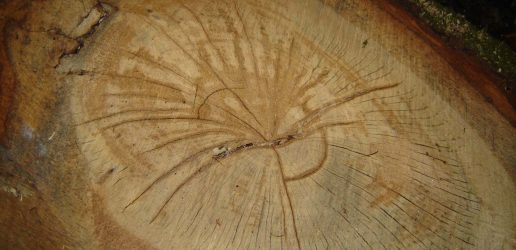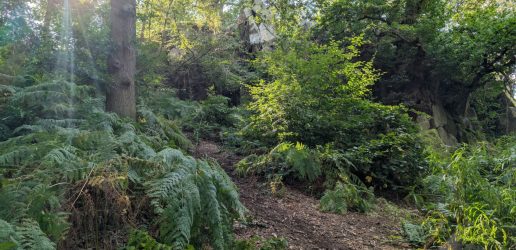Plants play essential roles in our lives by underpinning habitats and food webs, helping to characterise our landscapes, regulating our climate and providing raw materials for many economic activities. However, the potential for these contributions to be disrupted by pests and diseases is ever present, and may increase as a result of new arrivals whether deliberately introduced or unwittingly arriving through trade.
The UK Plant Health Risk Register identifies at least 900 pests and pathogens which could pose a future threat to wild plants, trees, and crops and cultivated plants. This makes it vital to adopt a co-ordinated approach across sectors to monitoring plant diseases, improving our understanding of the threats and sharing the best ways of managing risks and impacts.
To tackle these challenges the Scottish Government’s Rural and Environment Science and Analytical Services Division (RESAS) has provided funding to bring together a number of Scottish research organisations to establish a new virtual Centre of Expertise for Plant Health. Working with the Chief Plant Health Officer for Scotland, Professor Gerry Saddler from Science and Advice for Scottish Agriculture, the Centre will bring together key plant sectors to co-ordinate plant health needs and activities across Scotland and provide a Strategic Advice Response Team to enable rapid expert responses to policy questions.
The Centre is led by the James Hutton Institute (Professor Ian Toth), along with sector leads from Royal Botanic Garden Edinburgh, Forest Research, and Scotland’s Rural College, together with partners from Universities of Edinburgh, Stirling and Strathclyde, Centre for Ecology and Hydrology and Biomathematics and Statistics. From Forest Research, Professor Chris Quine is the Centre’s sector lead for forests and woodlands, and Dr Sarah Green and Dr Mariella Marzano bring with them expertise in forest pathology and understanding of public perceptions of plant health risks and their management. The Centre will also draw on Forest Research’s wider expertise including our entomologists, pathologists, climate change and spatial scientists.
The Centre will focus on plant health threats which are of the highest risk to Scotland. For example, one of our major threats is the bacterial pathogen Xylella fastidiosa which is able to infect over 200 plant species worldwide and is currently causing major economic losses to olive trees in Italy, and damage to other trees and flowering plants elsewhere in Europe. For this and other threats, the Centre’s activities will include a focus on understanding possible routes of entry into Scotland, the ability to spread to and infect our major plant species under our climatic conditions, as well as the best methods for control and when to implement them. In addition, the Centre will work closely with a broad range of stakeholders to understand and act on their priorities and concerns to protect Scotland into the future.
You can follow the activities of the Centre at @PlantHealthScot
Recent News
View All news
Thinking SMART when setting targets for urban tree cover
Urban tree cover should be SMART (Specific; Measurable; Achievable; Resourced; Time-bound), say researchers

Report instances of oak shake this felling season
Scientists are calling on woodland owners to report instances of oak shake this felling season as part of research to identify the causes of the cracking.

Tracking biodiversity progress in forest management
The Forest Biodiversity Index provides a quantitative, transparent and repeatable method for assessing the biodiversity potential of state-owned forests in Britain.

Thinking SMART when setting targets for urban tree cover
Urban tree cover should be SMART (Specific; Measurable; Achievable; Resourced; Time-bound), say researchers

Report instances of oak shake this felling season
Scientists are calling on woodland owners to report instances of oak shake this felling season as part of research to identify the causes of the cracking.

Tracking biodiversity progress in forest management
The Forest Biodiversity Index provides a quantitative, transparent and repeatable method for assessing the biodiversity potential of state-owned forests in Britain.
